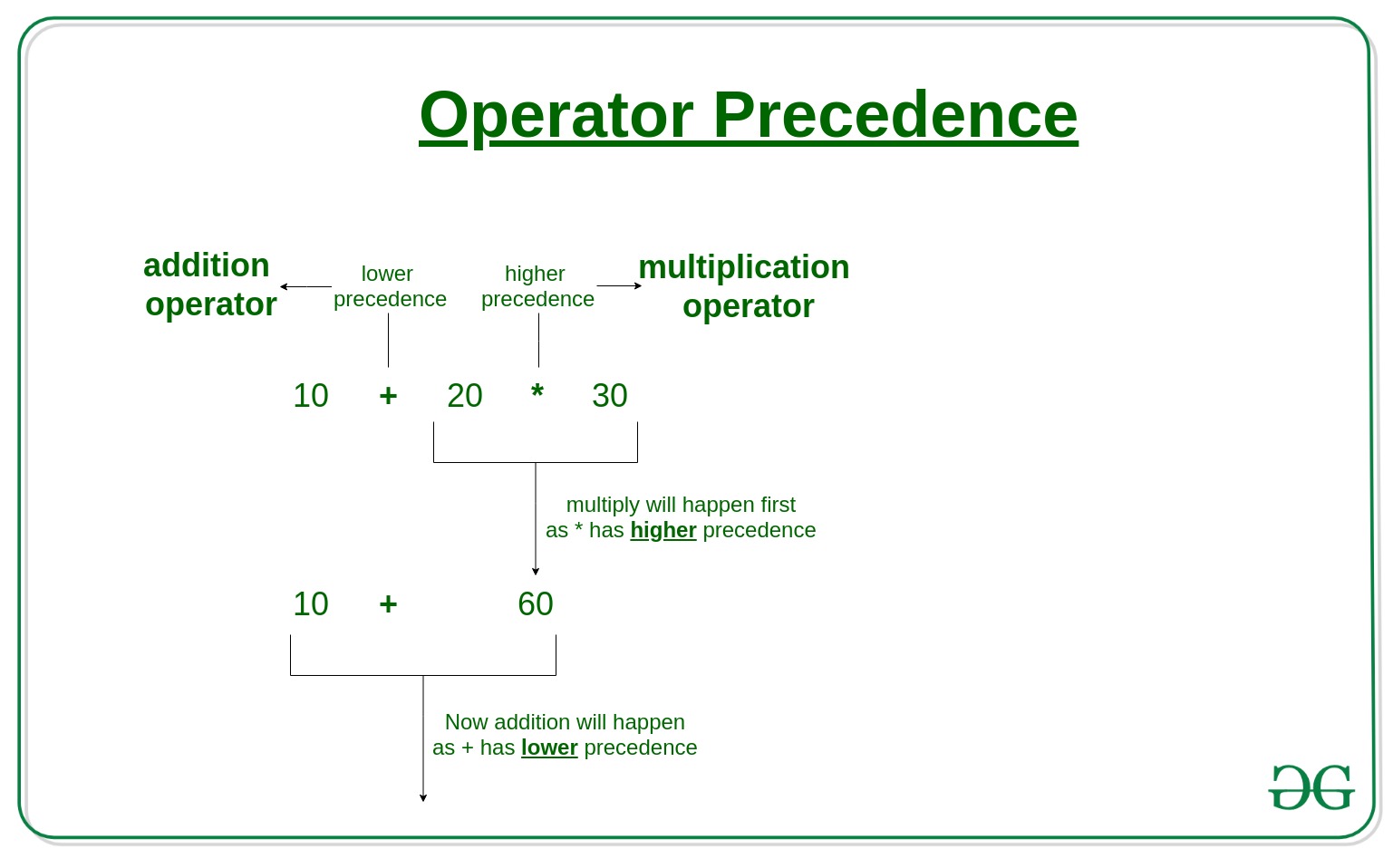Operator Precedence in Ruby
Last Updated :
24 Sep, 2019
Operators are used to perform different kinds of operations on operands. Which operator is performed first in an expression with more than one operators with different precedence is determined by operator precedence. when two operators of the same precedence appear in expression associativity is used. For example, ‘*’ and ‘/’ have the same precedence, so the expression “100 / 10 * 10” is worked as “(100 / 10) * 10”.

10 + 20 * 30 is calculated as 10 + (20 * 30)
and not as (10 + 20) * 30
In below table operators with the highest precedence appear at the top of the table and operators with the lowest precedence appear at the bottom.
|
Operator
|
Category |
| [ ] [ ]= |
Element reference, element set |
| ** |
Exponentiation |
| !, ~, + |
Boolean NOT, bitwise complement, unary plus |
| *, /, % |
Multiplication, division, modulo (remainder) |
| +, – |
Addition (or concatenation), subtraction |
| < <, > > |
Bitwise shift-left (or append), bitwise shift-right |
| & |
Bitwise AND |
| |, ^ |
Bitwise OR, bitwise XOR |
| >, >=, <, <= |
Ordering |
| <=>, ==, ===, !=, =~, !~ |
Equality, pattern matching, comparison |
| && |
Logical AND |
| || |
Boolean OR |
| | | |
Logical OR |
| .., …= |
Range creation and Boolean flip-flops |
| ?, : |
Conditional |
| modifier-rescue |
Exception-handling modifier |
| =, +=, -=, etc. |
Assignment |
| defined? |
Test variable definition and type |
| not |
Boolean NOT (low precedence) |
| or, and |
Boolean OR, Boolean AND |
| modifier-if, modifier-unless, modifier-while, modifier-until |
Conditional and loop modifiers |
| begin/end |
blocks |
Below is the example of operator Precedence.
Example :
a = 20;
b = 10;
c = 15;
d = 5;
e = 0
e = a + b * c / d;
puts"Value of a + b * c / d is : #{e}"
|
Output :
Value of a + b * c / d is : 50
In above example, multiply and divide have equal precedence. so it will work like 20 + (10 * 15) /5. firstly multiply perform than divide after that addition because addition has low precedence.
Like Article
Suggest improvement
Share your thoughts in the comments
Please Login to comment...